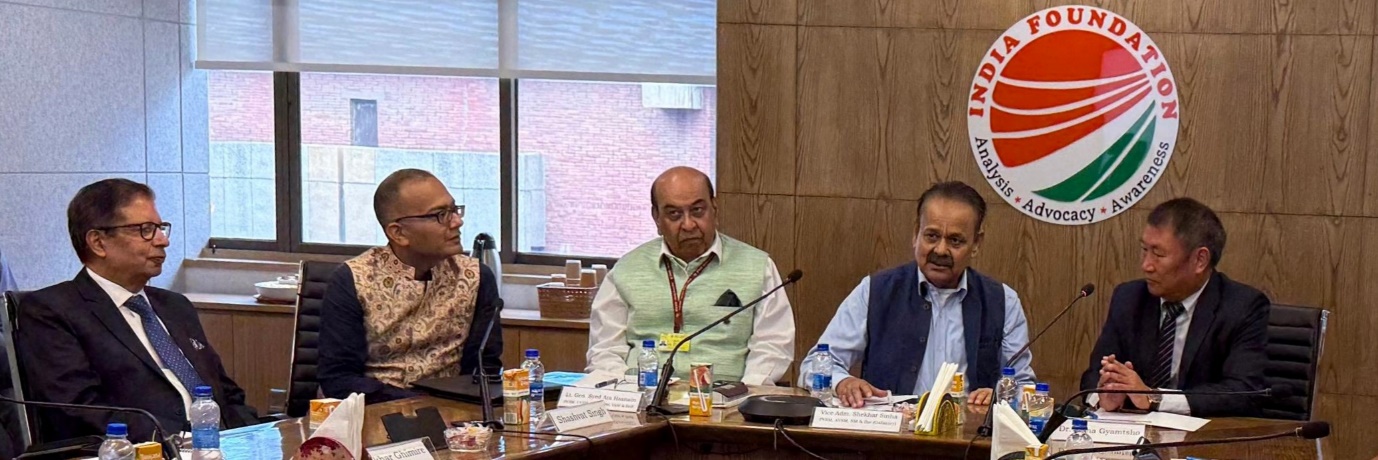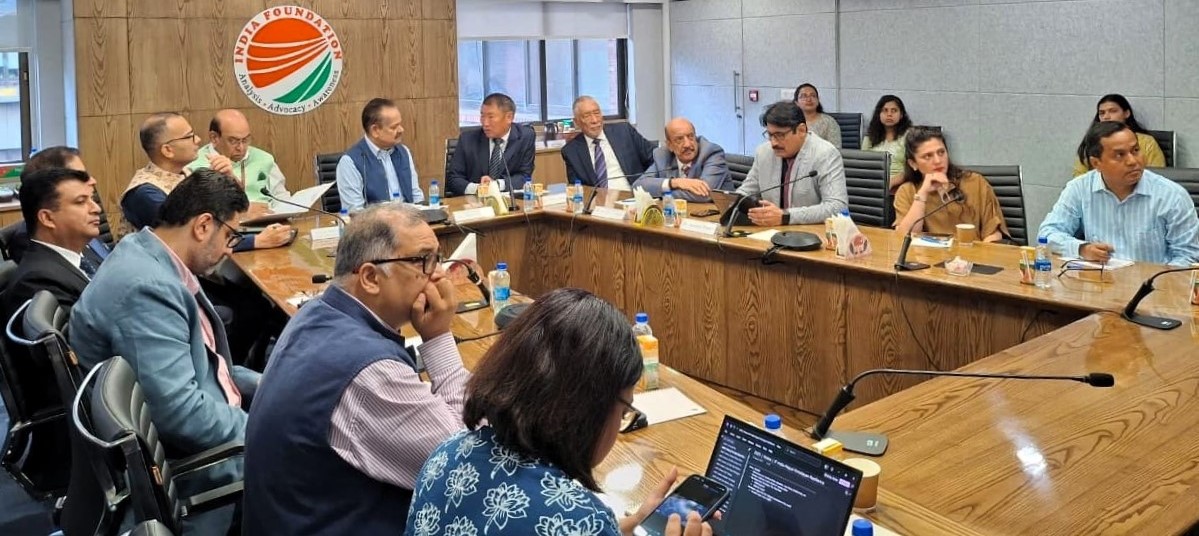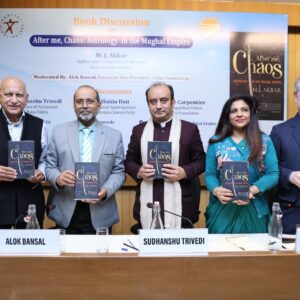On 13 August 2025, the India Foundation hosted a roundtable on “Enhancing Transboundary Cooperation to Address Cascading Climate Risks in the Himalayan Region,” bringing together policymakers, experts, and practitioners to deliberate on strengthening regional collaboration amid mounting climate challenges. Distinguished speakers included Dr. Pema Gyamtsho, Director General of ICIMOD, and Lt. Gen. Syed Ata Hasnain, Member of the National Disaster Management Authority (NDMA), Government of India. The event was also attended by Maj. Gen. Vetsop Namgyel, HE Ambassador of Bhutan to India, and Dr. Shankar Prasad Sharma, HE Ambassador of Nepal to India, along with representatives from leading climate organisations.

Summary of Remarks made by Dr. Pema Gyamtsho:
- Highlighted the critical importance of the Hindu Kush–Himalayan (HKH) region – often called the world’s Third Pole – which sustains nearly two billion people across eight countries.
- Noted that the region faces an accelerating climate crisis, with warming occurring at twice the global average, glaciers receding, and growing risks of glacial lake outburst floods, droughts, landslides, and cascading disasters such as the 2023 Sikkim and 2021 Melamchi floods.
- Added that these physical risks are compounded by socio-economic vulnerabilities, including high poverty, conflict, and gender inequalities in mountain communities.
- Outlining ICIMOD’s role as a neutral convenor linking science, policy, and practice, he shared key initiatives such as the HKH Assessment and HI-WISE Report, cryosphere monitoring networks, flood and landslide forecasting tools, and the implementation of community-based flood early warning systems in more than 20 sites.
- He also described nature-based solutions, springshed management programmes, and the establishment of the HKH Disaster Risk Reduction Hub in 2024 as steps toward resilience.
- Looking ahead, he emphasised ICIMOD’s Strategy 2023–2030, which calls for a regional institutional mechanism, enhanced coordination, and inclusive approaches.
- Stressing India’s pivotal role, he underlined that as the region’s largest democracy and fourth-largest economy, India’s leadership is critical in advancing transboundary cooperation.
Summary of Remarks made by Lt. Gen. Syed Ata Hasnain:
- Drew attention to the operational dimension of disaster management, focusing on inter-force collaboration between the Indian Army, Air Force, and the National Disaster Response Force.
- Praised advances in early evacuation and rehabilitation, enabled by technological tools such as satellite imaging, which have enhanced situational awareness in disaster-prone regions.
- Spotlighted the NDMA’s flagship innovation, the Sachet App, which integrates geo-intelligence and hybrid messaging channels to strengthen citizen preparedness, early warning, and rescue operations.
- Citing the Sikkim flash floods and other recent disasters, he described the NDMA’s whole-of-system response, which combined immediate humanitarian relief with longer-term recovery.

Points picked up during the interactive discussion:
- India’s past leadership in disaster relief, including its role in Nepal’s 2015 earthquake and Myanmar’s 2025 earthquake under Operation Brahma.
- The need for collective regional mechanisms to tackle shared climate risks more effectively.

The roundtable concluded with the signing of a Memorandum of Understanding between the India Foundation and ICIMOD to deepen cooperation on the climate and sustainability agenda in the Indian Himalayan Region (IHR) and the wider HKH region.
India Foundation looks forward to playing an important role via this partnership to build a resilient, inclusive, and sustainable IHR and HKH.



